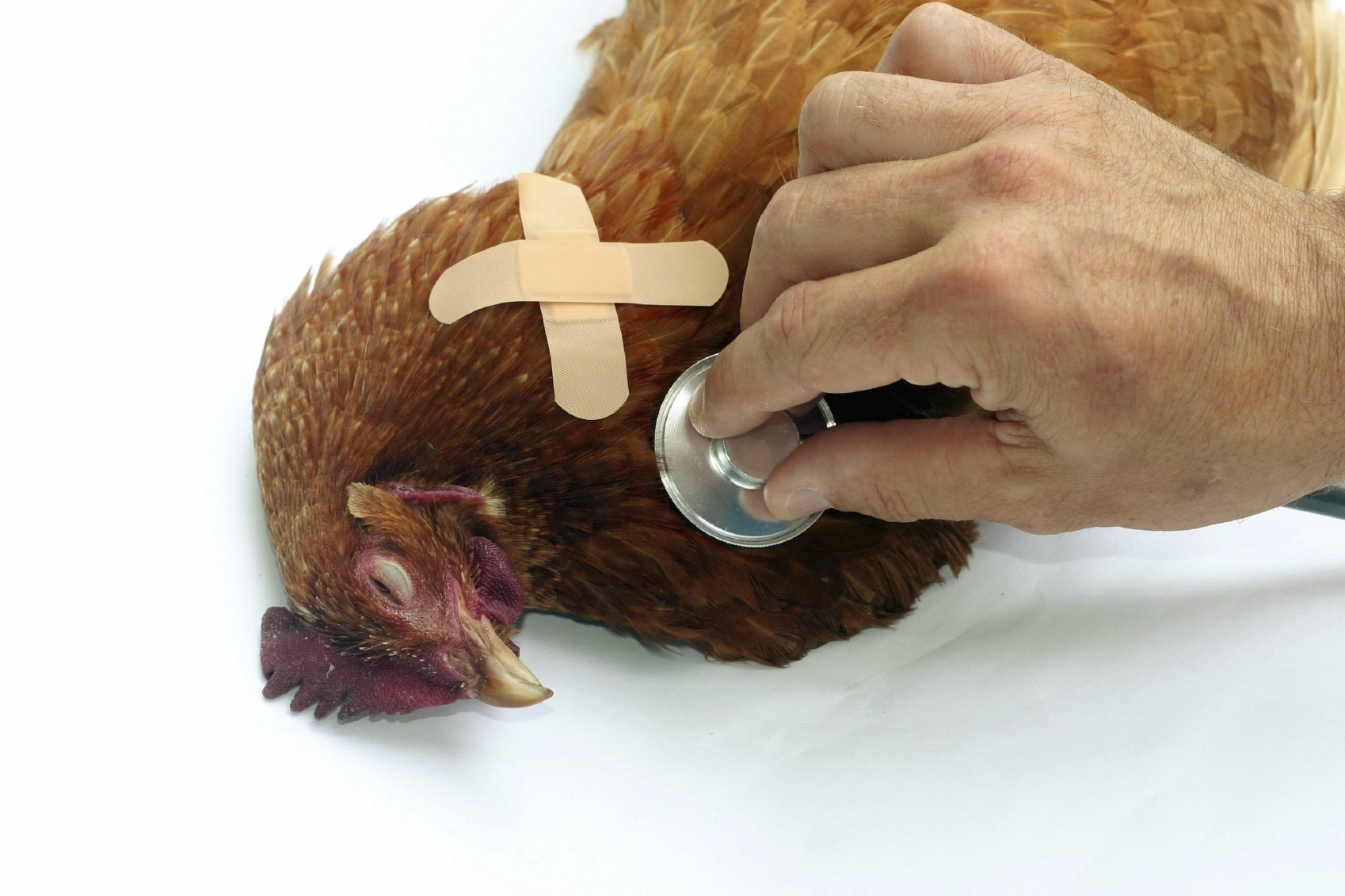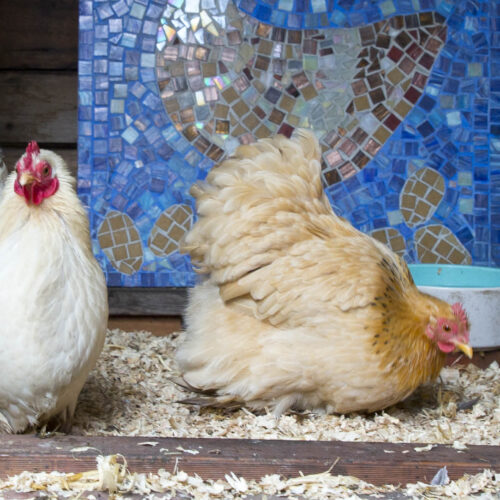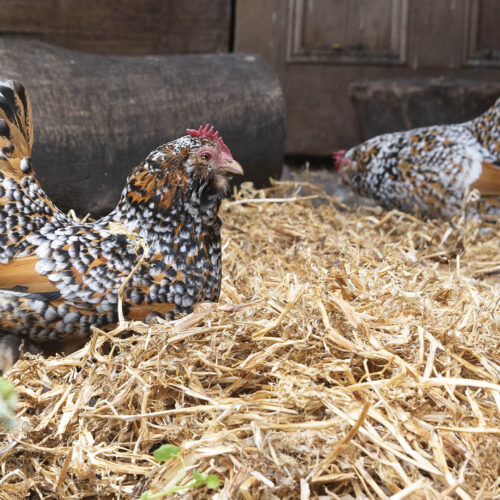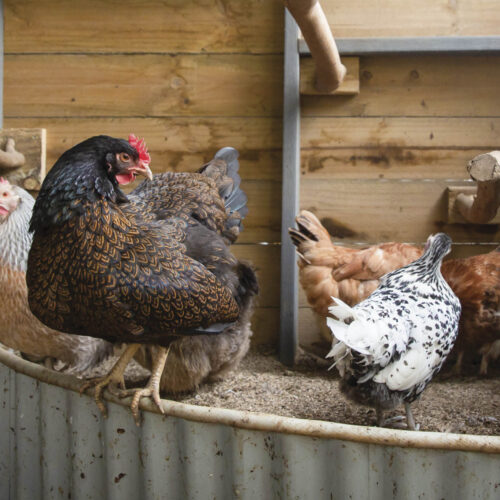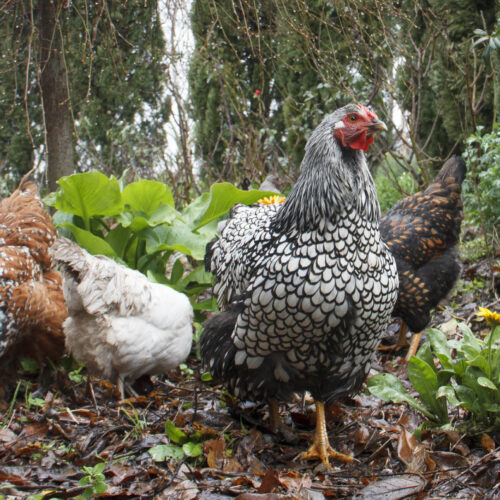Sick chooks
2016-05-02T03:30:30+10:00
JESSAMY MILLER explains how to care for a sick or injured chook.
Caring for Sick Chooks
There’s always drama with a backyard flock – last week it was a chick that got caught in a fence and needed stitches. Having a sensible procedure and a quarantine bay available for sick or hurt birds will make a stressful situation much easier.
The sick bay
Hurt or unwell birds want privacy and peace, so the first step is to isolate them. This helps prevent the illness reaching the other flock members, plus sick chooks can be a target for bullying, and will find competing for food and water stressful, which can hinder recovery.
Using a sick bay allows you to observe the bird’s symptoms and easily give medicine; mine is a rabbit hutch I found in hard rubbish. Make sure your patient has food, water, and a dust bath to keep herself clean.
If the chook is extremely ill, or has an open wound, you may need to put her on a towel in a secure cardboard box inside where you can keep an eye on her. Move her to sick bay when dirt will not present an infection risk.
Only return the fowl to the flock when she has fully recovered.
What’s wrong?
If it’s not clear, observe your patient to work out what is causing her malaise. Inspect her gently for any wounds or injuries. Here are some questions to ask yourself:
- How long has she been ill?
- Is she eating and drinking? Of normal weight?
- Has she ceased laying?
- How active is she? Is she squatting, hobbling or lying around?
- Is her comb pale or blueish?
- How do her eyes and nostrils appear and smell? Any discharge?
- What does her poop looks like? Does she have dirty vent feathers? Are lice or mites present?
Keep a record of your observations; this will help you diagnose the problem, keep up on her progress or the lack of it, and spot other flock members with the condition.
A sulkie silkie – how do you tell if
your chook is feeling out of sorts?
(photo by Jessamy Miller)
Home treatment
If you decide to treat the bird at home, be judicious in your approach. I know it’s tempting, but steer clear of online forums where advice may be well meant but unreliable, and consult reputable, evidence-based books and websites, such as those from governments and universities.
The key is to keep the bird quiet, warm and hydrated until the crisis has passed. Chooks are sensitive and don’t respond well to harsh treatments, so this is not the time for a spicy concoction or purging from a commercial wormer. Dab some homeopathic Rescue Remedy on her comb, and offer bland food like yoghurt and moistened pellets, and fresh water. Once she is on the mend, you can then choose to build up her immune system with an organic remedy such as a clove of garlic in water for three days.
Vet
You may need to decide whether a trip to the vet is warranted. Some vets don’t see many chooks, so locate your closest bird vet and get an idea of fees when you first get your chooks. Do take your observation notes. I’ve found that an early trip to the vet can save a number of trips later, but it is situation dependent.
Good luck with your chooks this sniffly winter. You’ll be happy to know that last week’s hurt chick was stitched up, spent a week in a box in the laundry, and went back to the flock as good as new. Let’s hope it’s a hen!
Recommended Books
ABC Organic Gardener ‘Happy Hens‘
Chicken Health for Dummies
Chicken Health Handbook by Gail Damerow
Merck Veterinary Manual (online at www.merckvetmanual.com)

